Approved by Dr. Luqman Javed
Groundhogs, or woodchucks, are common garden pests and leave burrows all over the place, causing injury to people and animals or damage to machinery that gets caught in them. They can even tunnel their way into a chicken coop, but despite popular belief, groundhogs don’t attack chickens.
In fact, they almost always sneak into the coop to take advantage of the free food that you put out for your flock.

Do Groundhogs Hurt Chickens?
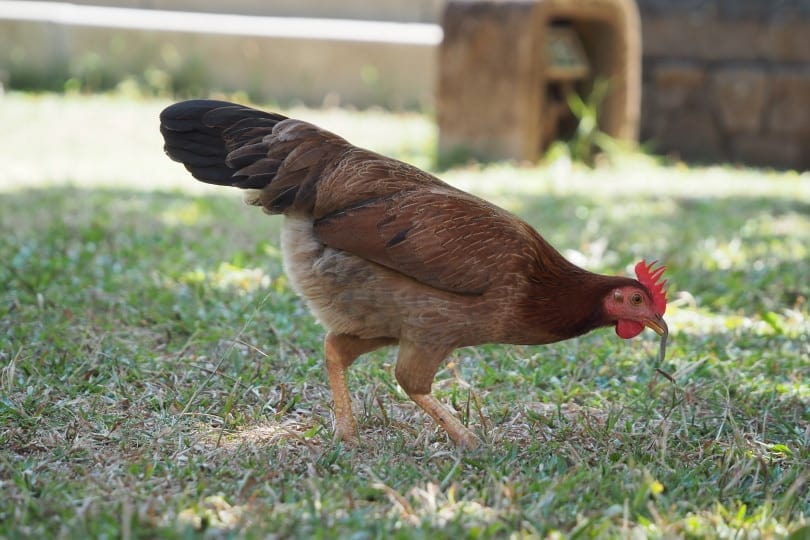
As herbivores, groundhogs aren’t interested in attacking or eating your flock. Along with plants, they have been known to eat snails, insects, and the eggs of small birds, but your chickens — and their eggs — are safe from harm.
Your chickens’ food, however, is another matter. Like other animals, groundhogs seek out the easiest source of food, and once they find it, they will keep coming back. Your chicken coop, with its regular feeding hours and full feeders, is like a walk-in buffet.
Groundhogs carry diseases — Lyme, Powassan, and rabies, for example — and parasites, like fleas and ticks, and they can pass them on to your chickens, you, and your pets if you don’t take precautions to protect your flock.

The 6 Ways to Protect Your Chickens Coop Against Groundhogs
While groundhogs don’t attack chickens, there are more than a few reasons that you should protect your chickens from a groundhog invasion. The main concern is that a predator could use their tunnels to gain access to a coop. Therefore, it might be worth investigating ways to keep them out.
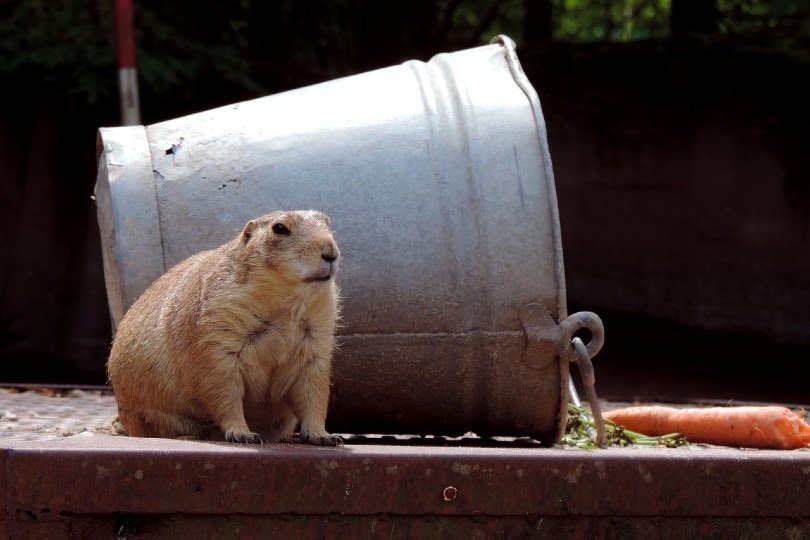
1. Fences
The easiest way to protect your chickens — and your vegetable patch — from groundhogs or any other unwanted visitors is by building decent fences. You need something better than simple wooden rails.
Metal fences, like chicken wire, are the best choice. Make sure the mesh isn’t larger than 3-inch squares, and you’ll need to make it at least 3–4 feet high. Leave a foot or so at the top unfastened to deter climbing, and bury it at least 18 inches at the base to prevent burrowing.
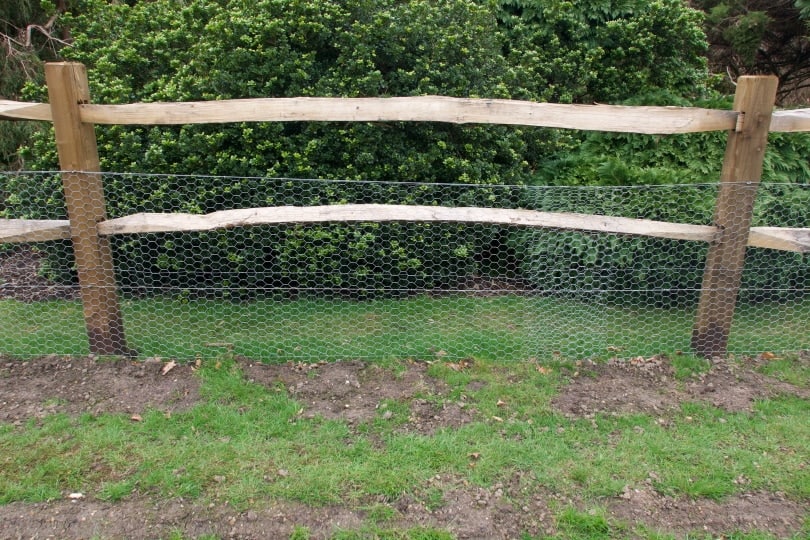
2. Cut the Grass
Groundhogs don’t like putting themselves at risk, and they’ll avoid places where they’ll easily be seen. For this reason, they love sneaking through long grass and creeping their way through dense foliage.
Keep the grass around your coop cut and clear out any wood piles that groundhogs can nest in. If the area around your coop is open, groundhogs are less likely to risk sneaking in.
3. Rodent Proof Food Bins
Keeping your coop safe against rodents is easier said than done, and groundhogs aren’t the only animals happy to devour your chickens’ food. Make sure you seal your chicken food bags into animal-proof bins. Anything that rodents can’t chew through or can get the lid off of will do the job nicely.
You can also get automatic feeders and waterers for your chickens to reduce the chance of uneaten portions drawing in unwanted guests.
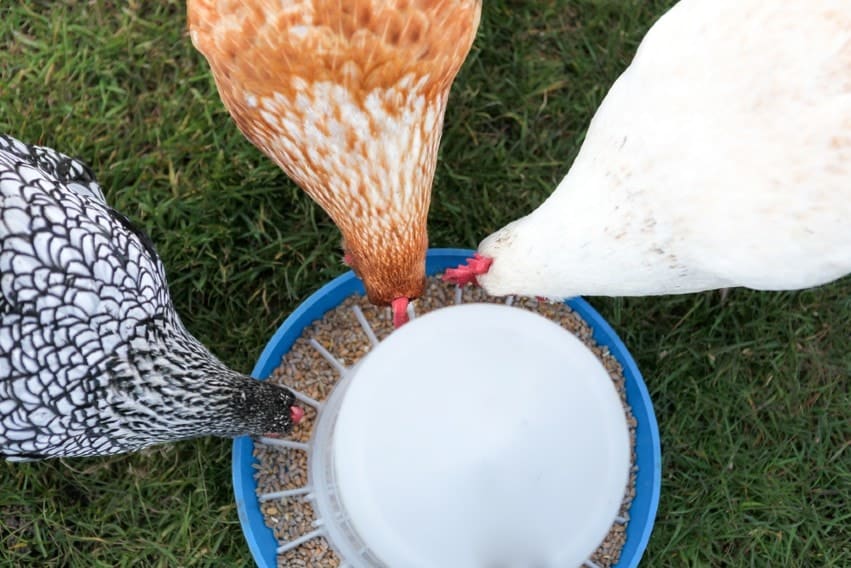
4. Make Their Burrows Uninhabitable
As creatures of habit that don’t like being in the limelight, groundhogs will abandon their burrows if they suspect that they’ve been invaded or are otherwise uninhabitable. You can do this by “harassing” your groundhog neighbors in various ways:
- Dig out the entrance.
- Pour smelly substances into the entrances, preferably harmless solutions like garlic and pepper, used kitty litter, or even dog urine or human hair.
5. Scare Tactics
Like other animals, groundhogs can be skittish around objects that they’re unsure of. Setting up scare devices, like rattling cans or balloons, will fend them off. As they get used to the sights and sounds, though, these tactics will become less effective. It’s best if you update them regularly.
6. Other Pets
Dogs make great groundhog deterrents. Cats are slightly less effective, but having either pet wandering around your yard regularly will convince groundhogs to give your coop a wide berth.
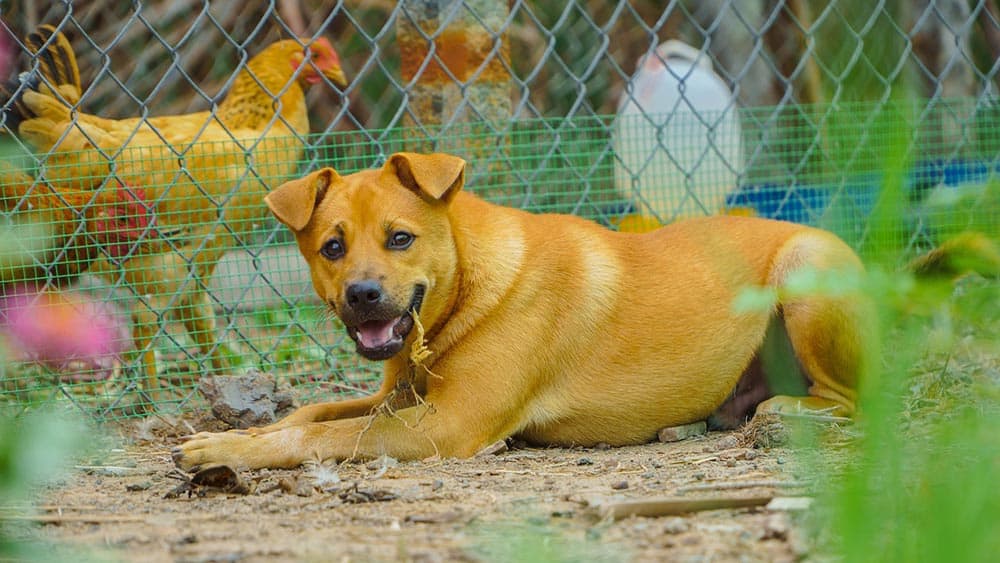

Other Animals Attacking Your Flock
You may notice signs of groundhogs around your coop and realize that you’re missing chickens. Since you know that groundhogs aren’t interested in attacking your flock, you now have to figure out what other animal is preying on your birds.
Chickens have multiple predators to watch out for, and these include untrained dogs and cats if you give your chickens free range of your land. Common predators that eat both chickens and their eggs include:
- Coyotes
- Foxes
- Birds of prey
- Bobcats
- Raccoons
- Weasels
- Snakes
- Possums
- Skunks
Fortunately, each of these predators has a different hunting style, and it’s easy to narrow down your chicken thief:
- Coyotes, foxes, bobcats, and birds of prey will all carry the chickens off and target adults and chicks.
- Snakes, raccoons, and domestic cats will all be especially drawn to chicks.
- Weasels will usually leave part of the bird behind.
- Raccoons and possums sometimes only eat part of the bird and leave the rest of the carcass.

Final Thoughts
Despite being a common menace to your gardens, especially where your vegetable patch is concerned, groundhogs don’t attack chickens and your flock is safe from them. Instead of eating your chickens or their eggs, groundhogs are more likely to be interested in the chicken food and scraps that they can scavenge from the coop.
There are plenty of ways to prevent groundhogs from stealing your chicken food. These involve keeping your lawn cut, especially around your coop, and investing in decent fencing. You can also deter groundhogs by placing smelly items like used kitty litter or dog feces in the entrances to their burrow. Sometimes, repelling groundhogs is as simple as letting your dog wander the yard a little more often.
If your chickens are going missing, consider another cause. While groundhogs won’t attack your flock, there are plenty of predators — both on the ground and airborne — that would love to steal a chicken for their next meal.
Related Reads:
Featured Image Credit: M. Maggs, Pixabay
